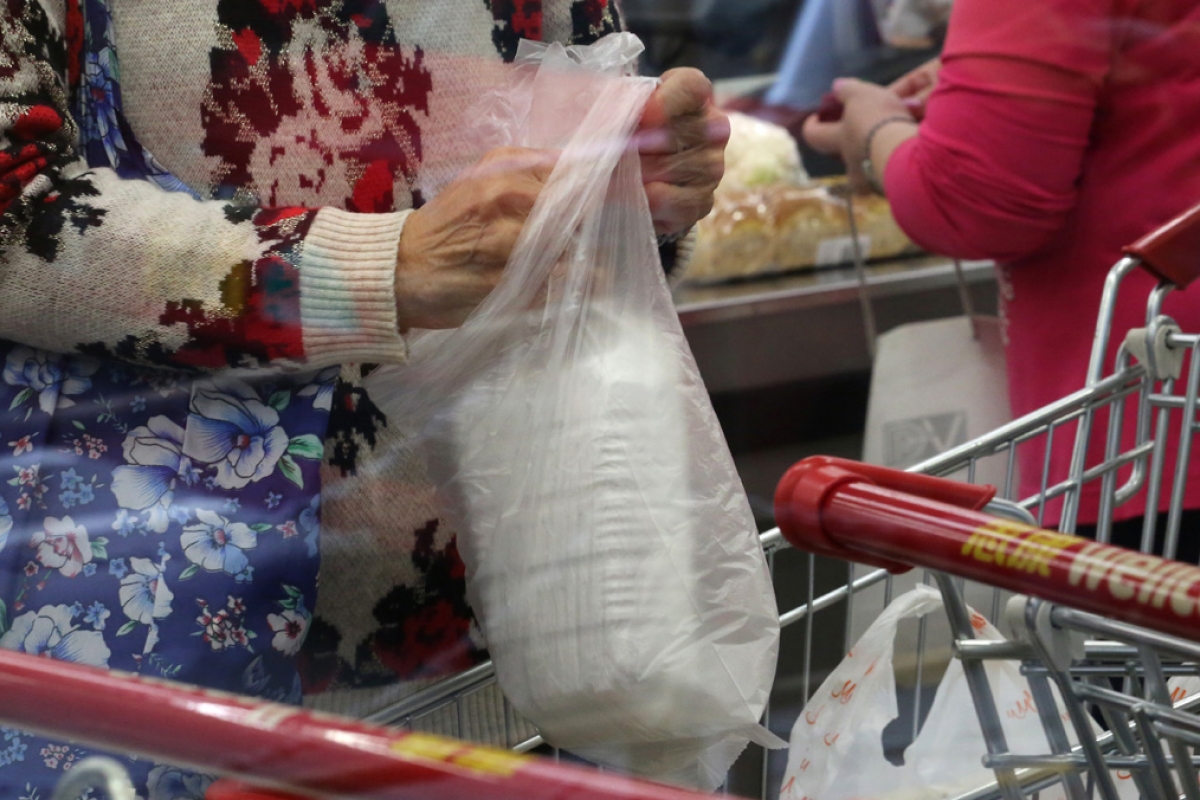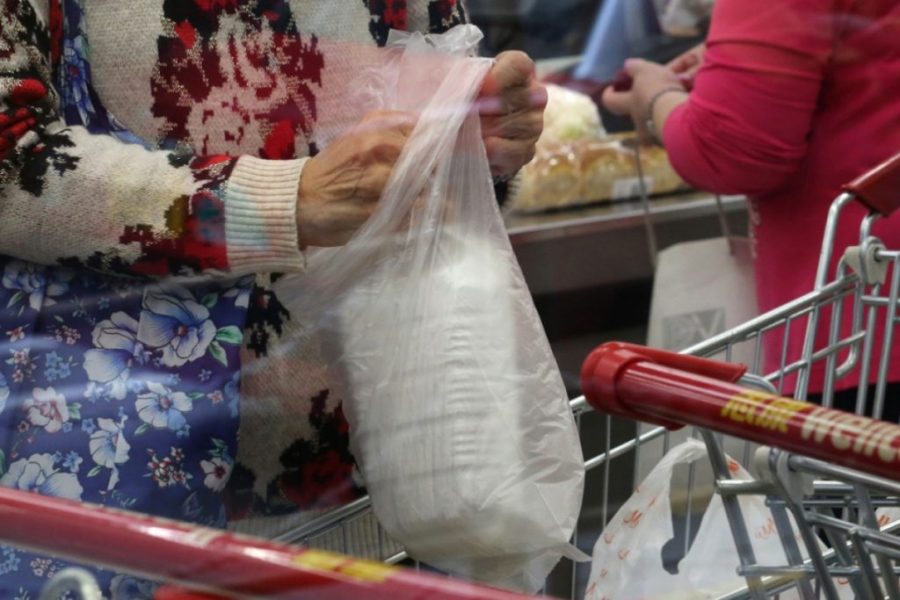Executive Council spokesman Leong Heng Teng announced Thursday that the government has drafted a bill which if approved by lawmakers would force supermarkets and other retail businesses to charge customers for their plastic carrier bags.
Addressing a press conference at Government Headquarters, Leong said that the council, the government’s top advisory body, has completed its discussion of the bill aiming to reduce the use of plastic carrier bags.
Leong noted that the government has previously carried out a public consultation on the matter – which took place from December 2015 to February 2016.
The opinions collected during the consultation process generally acknowledged the critical situation resulting from the overuse of plastic carrier bags in Macau and agreed to the launch of a plastic carrier bag charge scheme in the retail sector, Leong said.
Based on the findings from the public consultation process, the government has drafted the bill with the aim of reducing plastic carrier bags’ adverse impact on the environment.
The bill will be submitted in due course to the Legislative Assembly (AL) for debate and vote.
The government proposes that the bill would become law 90 days after its promulgation in the Official Gazette (BO), Leong said.
According to Leong, the bill proposes that the amount to be charged for each plastic carrier bag is to be determined by the chief executive in an executive order.
During the consultation process, the government proposed that one pataca should be charged per bag, Leong noted, adding that most of the opinions collected agreed to the government’s one-pataca suggestion.
Also addressing the press conference, Environmental Protection Bureau (DSPA) Director Raymond Tam Vai Man said that the bill proposes that the plastic carrier bag charges will be added to the respective businesses’ income.
Tam said that after referring to neighbouring regions’ practices and considering the possibly high administrative costs, the government believes that it would be more suitable for Macau to adopt the practice in which the plastic carrier bag charges are collected by the respective businesses rather than by the government.
According to Leong, the bill proposes that exemptions should be made for plastic carrier bags used to ensure food hygiene, such as for unpackaged food or medicinal products, for non-hermetically packaged food or medicinal products, and for food or medicinal products that need to be kept in a cold or hot state.
Leong gave an example in which vendors in wet markets would still be allowed to provide free plastic carrier bags for fresh food.
According to Leong, the bill proposes that shops will be fined 1,000 patacas each time they violate the rule –by providing customers with free plastic carrier bags.
In Hong Kong, charges for plastic shopping bags were implemented in April 2015, each plastic bag costing HK$0.50, is applicable to all retail outlets.
Tam said that the consumption of plastic carrier bags was reduced by 80 percent in a neighbouring region – understood to refer to Hong Kong – in the initial stage after its plastic carrier bag charge scheme was first implemented.
According to Hong Kong media reports last year, the consumption of plastic carrier bags there appears to have increased again since its plastic carrier bag charge scheme was implemented several years ago, a possible reason being that shoppers have got used to the charges.
Tam said the government believed that the consumption of plastic carrier bags in Macau would decrease by at least 50 percent in the initial stage after the charge scheme is implemented, adding that this was a rather conservative estimate. He was quick add the government expected Macau to experience a situation similar to the one in the neighbouring region – i.e. the consumption of plastic carrier bags in Macau would initially also decrease by 80 percent after the implementation of charges for plastic carrier bags.(Macaunews)






